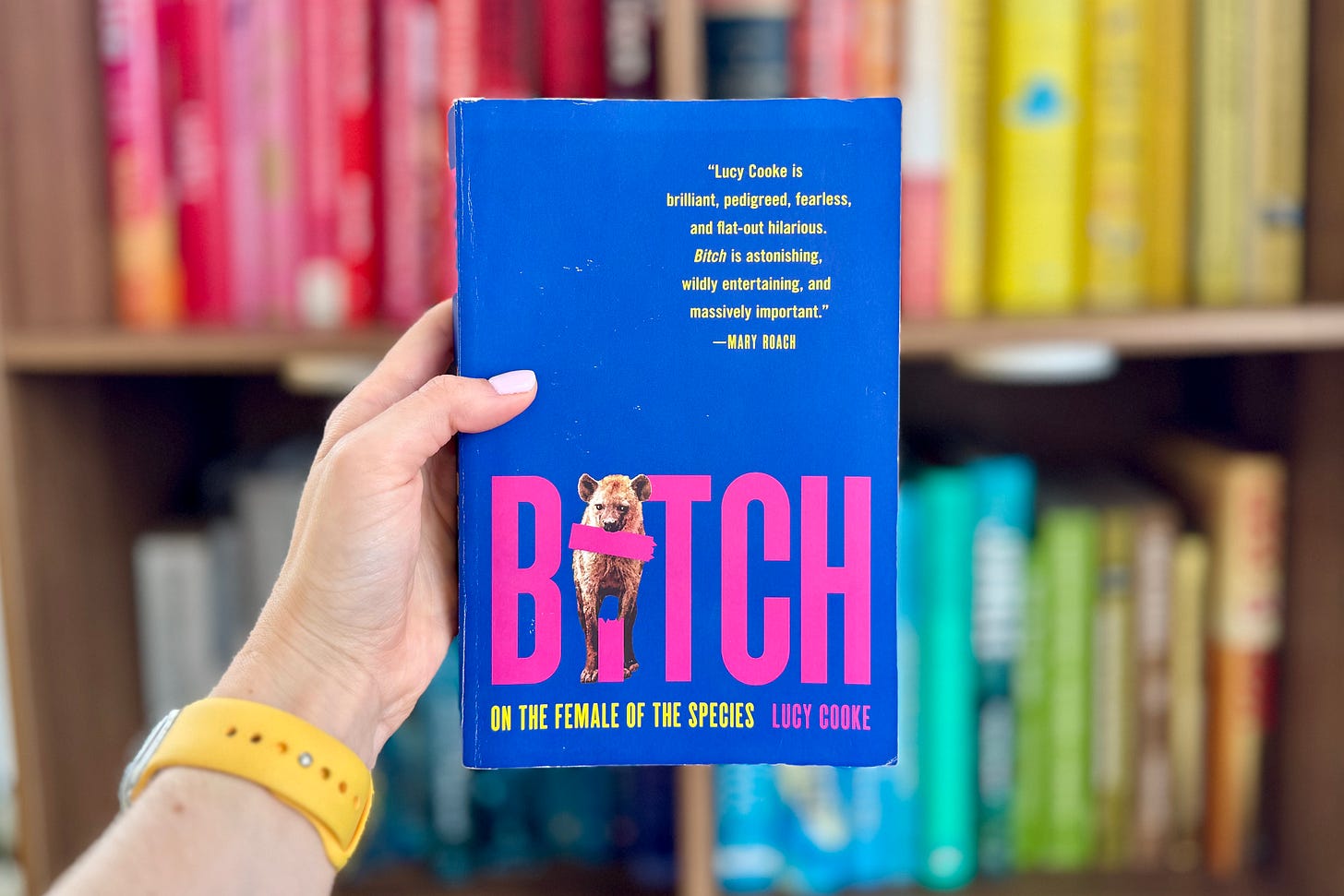What can hyenas, bonobos, and fruit flies teach us about the female experience?
Lucy Cooke's 'Bitch' concludes that there is no single definition of what it means to be ‘female’ in nature.
Author: Lucy Cooke
About: There is no standard definition of what it means to be female in nature; the traditional binary of the ‘passive female’ as contrasting the ‘active male’ must be rewritten.
Most surprising takeaway: Sexes are more alike than they are different. Placing the female inside a single mold or story exaggerates the similarities between them (the female experience is so varied) and the differences between us and males (with whom we share more than we differ).
Good for: Conscientious parents-to-be, disillusioned feminists, natural scientists, tradwives.
Rating: 4.3/5
Summary and review
I never thought I’d nod along vigorously with a book that claims that Darwin was wrong, but here we are.
In Bitch, Cooke clearly still reveres Darwin and his revolution, but this book sheds light on how the overbearing Victorian cultural and social influences over Darwin biased and limited his analysis of the dynamics between the sexes in the species he studied.
While many scientific institutions are currently under attack for pushing ideology or political agenda, Bitch reveals that science, being the product of humans, has always been corrupted, biased, and limited by prevailing cultural norms.
Cooke’s main thesis is that biology, and therefore much of what has been concluded about human nature is the result of a narrow and misinformed understanding of sex roles in the animal kingdom.
The old way of thinking compares the ‘passive’ female (whose only role is to ‘mother’ and reluctantly gratify her chosen mate with sex) with the ‘active’ male (whose aggression and adventure shape the evolutionary legacy of a species).
This dynamic is widely accepted and taught by biologists in the post-Darwin world.
But is it true?
Bitch takes a comprehensive look at the state of affairs and concludes that there is no single definition of what it means to be ‘female’ in nature.
Takeaways
For me, this is a liberating concept. Already it has helped me not to view all of my quirks as the product of chromosomes and hormones (perhaps I'm not a certain way because I'm female, but simply because I'm me). Bitch helped me realise that what we typically ascribe as sex differences in humans are often simply personality differences. As she argues, “there is more variation among sexes than there is between them.”
All of which means that we are more alike than we are different – another breath of fresh air for modern feminists who may see the world in terms of us and them. To quote Cooke, "our shared humanity is far stronger than our diverging gametes, chromosomes, or social roles."
Mental models
False attribution (as a result of generalization)
Are you attributing certain traits based on a generalization? For example, do you assume that your mother’s love of flowers is the product of her gender?
Obsession over differences
Dividing the natural world into male versus female has led scientists, and the rest of us, to focus on differences between sexes more than our similarities, which are far more numerous. Similar to false dichotomy, below.
False dichotomy
Science has been obsessed with male versus female for so long that it has ignored the many cases in which sex is more fluid and ‘sex roles’ are more varied.
Did you read Bitch? Let me know what you thought.
Related reads:
The Selfish Gene (Richard Dawkins, 2016 [4th ed.])
On the Origin of Species (Charlies Darwin, 2003 anniversary ed.)


